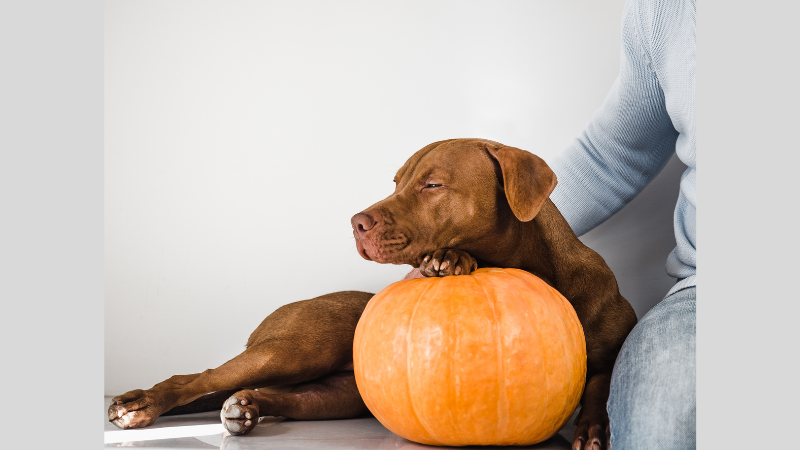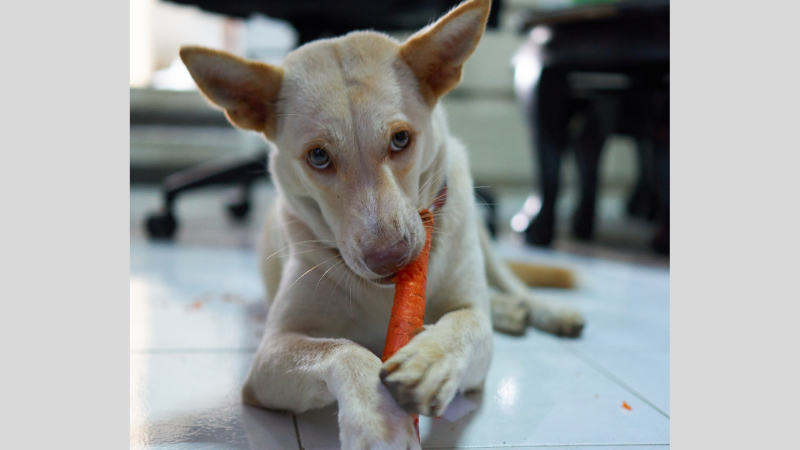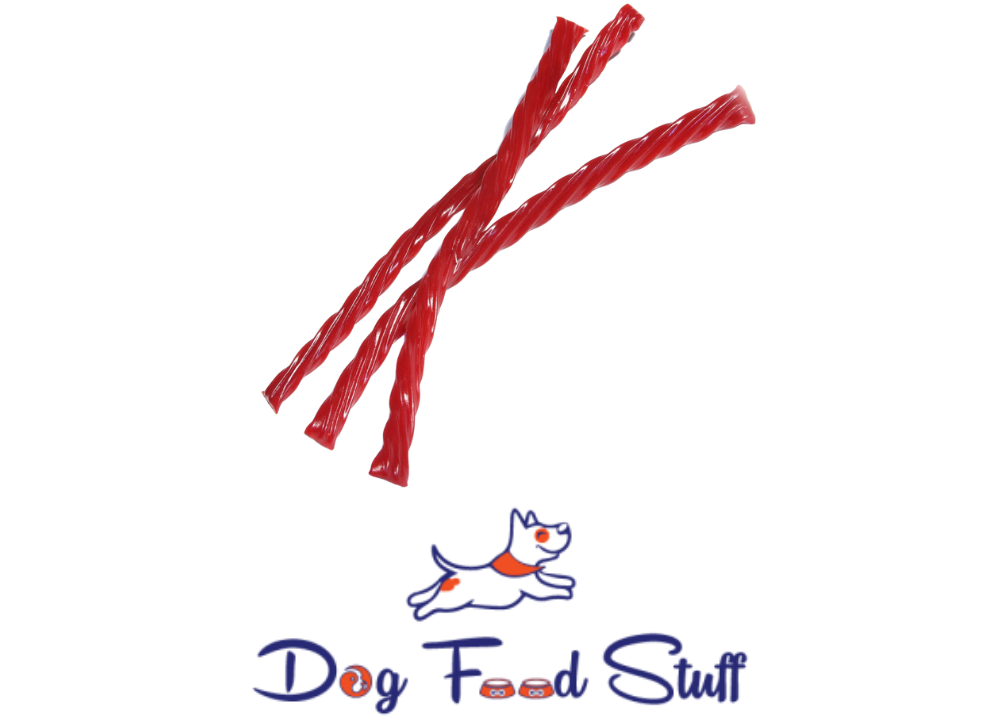Exploring Can Dogs Eat Twizzlers? Safety Insights
Dogs should not eat Twizzlers due to their high sugar content and potential for harmful additives. Twizzlers can pose a risk to canine health if ingested.
Pet owners often worry about sharing human treats with their canine companions. Twizzlers, the popular licorice candy, might seem like a harmless indulgence to share with your furry friend. Yet, despite the occasional pleading gaze from your pet, it’s important to recognize that what’s sweet for humans isn’t always suitable for dogs.
Twizzlers are formulated for human taste buds and digestive systems, not for our four-legged friends. This brief introduction is set to unravel the reasons Twizzlers could be detrimental to your dog’s health and what measures to take for a pet-safe environment when indulging in such snacks. Understanding the dietary limitations and health needs of dogs is crucial for all responsible pet owners.
Are Twizzlers Safe For Dogs?
Parents of furry friends often wonder about safe treats. Twizzlers might seem harmless, but are they good for dogs? This post explores the safety of Twizzlers for our canine companions.
Ingredients In Twizzlers
Understanding what’s inside Twizzlers is the first step. Common ingredients include:
- Corn syrup – a sugar form that can lead to obesity.
- Wheat flour – safe for humans, not best for dogs.
- Sugar – causes dental problems and diabetes in dogs.
- Cornstarch – not beneficial for a dog’s diet.
- Palm oil – high in calories, leading to weight gain.
- Salt – in small amounts, safe, but excessive can be harmful.
- Artificial flavors – can cause allergies.
- Colorants – some are linked to health issues.
Potential Risks
Feeding dogs Twizzlers can pose several risks:
| Ingredient | Risk |
|---|---|
| Sugar | Dental issues, obesity, diabetes |
| Salt | Dehydration, sodium ion poisoning |
| Artificial additives | Allergic reactions, digestive upset |
If dogs consume too many Twizzlers, it can lead to emergency vet visits.
Safe Alternatives
Dogs crave treats, so try these safer options:
- Carrots – crunchy and full of nutrients.
- Apples – without seeds, a vitamin-rich snack.
- Green beans – low calorie and filling.
- Pumpkin – helps with digestion.
Always remove seeds and cores from fruits. Consult a vet for personalized advice. Stick to these healthy treats for a happy and safe pup!

Health Effects Of Twizzlers On Dogs
Twizzlers may seem like a sweet treat for humans, but what happens when dogs indulge in this sugary snack? Many dog owners are unaware of the potential health risks that Twizzlers can pose to their furry friends.
Digestive Issues
Dogs have a different digestive system from humans. Ingesting Twizzlers can lead to upset stomachs or worse. Here is what can happen if a dog eats Twizzlers:
- Vomiting: Dogs might throw up due to the unusual ingredients.
- Diarrhea: The high sugar content disrupts their gut.
- Bloating: Certain ingredients in Twizzlers might cause gas or bloating.
Obesity And Weight Gain
Long-term health can suffer if dogs eat sugary treats like Twizzlers. Excess weight gain is one risk.
This can lead to:
| Consequence | Reason |
|---|---|
| Joint Problems | Extra weight puts pressure on joints. |
| Diabetes | Sugar spikes can cause insulin issues. |
| Heart Disease | Obesity can strain the heart. |
Toxic Compounds
Some ingredients in Twizzlers may be toxic to canines. Artificial colors and flavors can cause health concerns. Xylitol, an artificial sweetener, is very dangerous for dogs.
Critical effects include:
- Liver Failure: Xylitol can quickly damage a dog’s liver.
- Hypoglycemia: Blood sugar levels can drop suddenly.
- Seizures: In severe cases, dogs could have seizures.
Signs Of Twizzler Ingestion In Dogs
It’s important for dog owners to understand the signs of Twizzler ingestion in their pets. While Twizzlers may be a sweet treat for humans, they potentially contain ingredients that are harmful to dogs. Spotting the symptoms early can help prevent serious health issues. Here’s what to look for if you suspect your furry friend has snacked on this candy.
Vomiting And Diarrhea
If your dog eats Twizzlers, they might start to vomit or have diarrhea. These are common signs that their body is trying to rid itself of something harmful. The red dyes and high sugar content in Twizzlers can upset your dog’s stomach, causing these unpleasant reactions.
Lack Of Appetite
Another indication of Twizzler ingestion is a sudden drop in appetite. Dogs usually love to eat, so if your pet is turning down meals, this is a red flag. Twizzlers offer no nutritional value and can disrupt your dog’s usual eating habits.
Behavioral Changes
Last but not least, look out for any changes in behavior. An affected dog might become lethargic, unusually hyperactive, or show signs of discomfort. Since Twizzlers contain sugar and other additives, they may lead to energy spikes or a general feeling of unease in your canine companion.
| Symptom | Potential Cause | Action to Take |
|---|---|---|
| Vomiting or Diarrhea | Stomach upset from dyes/sugar | Contact vet, monitor hydration |
| Lack of Appetite | Nutritional disruption | Observe eating, consider vet visit |
| Behavioral Changes | Response to additives/sugar | Monitor behavior, discuss with vet |
What To Do If Your Dog Eats Twizzlers
Discover what steps to take if your furry friend sneakily snacks on a Twizzler. Quick action can keep them safe. Let’s look into the steps you should follow.
Contact A Veterinarian
Immediately reach out to your pet’s doctor if they eat Twizzlers. Twizzlers contain ingredients like sugar and xylitol that are harmful to dogs. Your vet will provide the right advice on what to do next.
Inducing Vomiting
Don’t try to make your dog vomit without talking to a vet first. Vets know the safest way to do this. They might tell you how to do it at home or suggest bringing your dog in. Follow their instructions carefully. This step can prevent further absorption of any harmful ingredients.
Monitoring Your Dog’s Condition
After your dog has eaten Twizzlers, keep a close watch on them. Look for symptoms like diarrhea, vomiting, or lethargy. Take note of any odd behavior and report it to the vet. Keep your pet comfortable and ensure they have plenty of fresh water.
Safe Treat Alternatives For Dogs
Dog lovers often wonder what snacks are safe for their furry friends. Twizzlers might seem harmless, but they’re not a good choice for dogs. Fret not, there are many delicious and healthy alternatives. Let’s dive into some safe treats for dogs that will keep tails wagging!
Fruit And Vegetable Snacks
Many fruits and vegetables are fantastic treat options for dogs. They offer vitamins and can be low in calories. Here’s a snack list:
- Apples (without seeds)
- Carrots (crunchy and good for teeth)
- Blueberries (antioxidant-rich)
- Green beans (fiber-filled)
- Pumpkin (good for digestion)

Pet-safe Chews
Chews are great for a dog’s dental health. Opt for vet-approved pet-safe chews like:
- Rubber chew toys (durable and non-toxic)
- Dental sticks (specifically designed for dogs)
- Rawhide alternatives (like rice-based chews)
Homemade Treat Recipes
Homemade treats can be both fun and safe. Try these easy recipes:
| Recipe Name | Main Ingredient | Ease of Making |
|---|---|---|
| Peanut Butter Pops | Unsalted Peanut Butter | Simple |
| Chicken Jerky | Lean Chicken Breast | Moderate |
| Sweet Potato Chews | Sweet Potato | Easy |
Frequently Asked Questions
Are Twizzlers Safe For Dogs To Eat?
Twizzlers are not toxic to dogs but they aren’t a safe treat either. They contain high sugar and artificial ingredients which can cause digestive issues. It’s best to avoid giving them to your dog and choose dog-friendly snacks instead.
Can Twizzlers Cause Health Problems In Dogs?
Yes, Twizzlers can cause health problems in dogs such as diarrhea and obesity due to their high sugar content. The artificial sweeteners, especially xylitol, are also toxic to dogs and can lead to more severe health issues.
How Many Twizzlers Can A Dog Eat Safely?
Dogs should not eat Twizzlers. Even small amounts can lead to unwanted health effects due to sugar and artificial ingredients. For your dog’s health, it’s recommended to avoid Twizzlers altogether.
What Should I Do If My Dog Ate Twizzlers?
If your dog eats Twizzlers, monitor them closely for any signs of digestive upset or distress. If symptoms appear or if they’ve consumed a large quantity, contact your vet immediately for advice as they might need professional care.
Conclusion
To wrap up, it’s clear that Twizzlers and dogs don’t mix well. Prioritizing your pet’s health means choosing snacks made for canines, not sugary human treats. Keep Twizzlers out of paw’s reach, and opt for dog-safe alternatives instead. Your furry friend will thank you with wags and good health!

